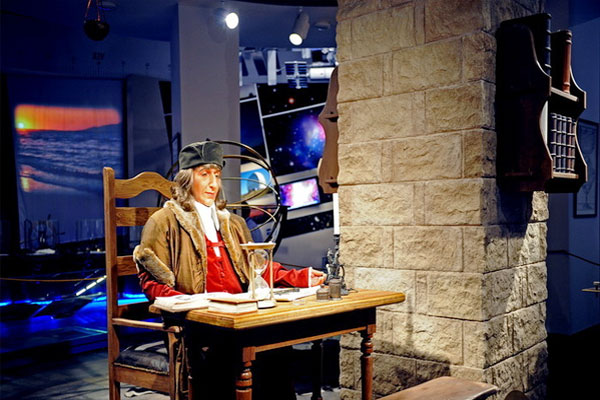A MEdievAL Astronomer
Posted on 04/07/2013 I by: JAI SINGH

Despite his best efforts, Jai Singh remained to the very end of his days a medieval astronomer, the last link in the tradition of Nasir A1-Din at Tusi and Ulugh Beg. However, his instruments are the finest examples of a by-gone era that had come to a close with the advent of the telescope. Jai Singh shared the interests and concerns of the medieval astronomers of the Islamic period and opted for large masonry structures whenever high precision in measurements was called for. With his measurement, he concluded that he doubed the geocentric model of the heavens. Finally, to complete the picture, he wrote a Zij on the pattern of the Zij-I-Ulugh Begi.
It is a tragic fact that the science of astronomy, despite Jai Singh’s multifaceted efforts, did not revive in India. Jai Singh failed to usher in the modern age of this science in his country. The neo-astronomy was to come from an entirely different route, i.e., the colonial British rule in the North. Its arrival had to await a few decade more until the colonial British established themselves firmly in Bengal. Then, a number of scholars of Persian, having acquainted themselves with the new science, wrote about it for the benefit of their fellow countrymen. For example; Abu Talib Al-Husayni wrote a monograph on modern astronomy in Persian in 1798. In 1826, Abu’s Khayr Ibn Mawlwi Ghiath al-Din wrote Majma a Shamst, a monograph on the Corpernican system and also wrote Mifiah al-aftak (Key to Heavens) in Urdu in 1833.
Jai Singh approached his astronomical researches with an open mind. Before embarking upon his project, he studied what was available to him. Moreover, during his investigations, he kept this attitude alive. His search for better instruments continued on even after his observations had been built.
According to du Bois he was ready to put aside his own tables if better ones were available. Jai Singh’s accomplishments were medieval in retrospect, but his outlook was quite modern. His efforts were truly secular. For him scientific knowledge had no religion or nationality. Astronomers of all faiths participated in them a fact that alone is a great compliment to a ruler born in an environment and age of intolerance and bigotry.
By: JAI SINGH

